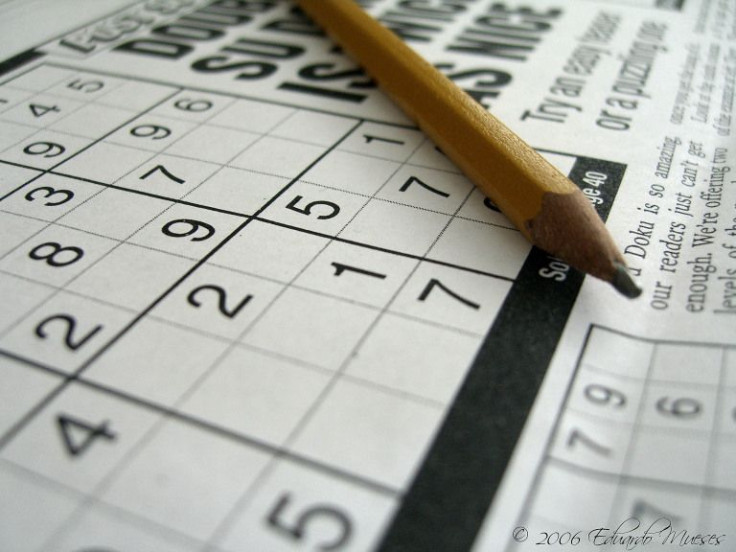Sudoku Puzzles Triggered Seizures In An Avalanche Survivor, But How?

Although we know much about the inner workings of the brain, every so often scientists come across a diagnosis that leaves even them at a loss for words. One such case was that of a man who discovered that brain damage caused by a skiing accident left him unable to complete a Sudoku puzzle without being overcome by seizures.
The patient, who is described only as a right-handed, 25-year-old physical education student, began to experience this strange affliction shortly after he was buried under an avalanche during a ski trip. Although the patient survived the accident, he was subjected to 15 minutes of oxygen deprivation, which left him with considerable brain damage. As a result, he struggled with occasional mouth and leg twitches when he spoke or walked, the press release reported.
At first, the doctors believed these twitches were the extent of his injuries, but several weeks after being released from the hospital, the patient reported experiencing uncontrollable seizures of his left arm while completing a Sudoku puzzle. The arm spasms “stopped when the Sudoku puzzle was discontinued,” the researchers wrote in a study on the case published in JAMA Neurology, leading leading them to label the Sudoku puzzle as the seizure’s trigger.
Sudoku is a logic-based puzzle that challenges individuals to think in a three-dimensional manner in order to fill numbers into a grid in a specific sequence. According to the researchers, this 3D imaging activated a part of the patient’s brain that had been damaged by oxygen deprivation during the accident. They hypothesized that stimulation of damaged brain fibers had prompted neural activity to spill into neighboring areas of the brain — in this case, the area of the brain that controlled arm function.
While this may be the first time researchers documented seizures triggered by Sudoku puzzles, reflex epilepsy, or seizures provoked by either external or internal stimulus, is a well documented medical condition. According to Medscape, these types of seizures occur in only around 5 percent of all epilepsies. Some of the most common triggers for reflex seizures are visual stimuli, but in more complex cases the seizures may be triggered by activities such as reading or hearing music. For example, late last year a young British mother reported she suffered from seizures, severe nausea, and lack of mobility whenever she heard music performed by R&B artist Ne-Yo.
In the avalanche patient’s case, no other stimuli triggered his uncontrollable arm behavior. The researchers reported that the patient has given up Sudoku for good and has been seizure-free for the past five years.
Source: Fedderson B, Vollmar C, Remi J, Stephan T, Flanagin VL, Noachtar S. Seizures From Solving Sudoku Puzzles. JAMA Neurology. 2015.



























